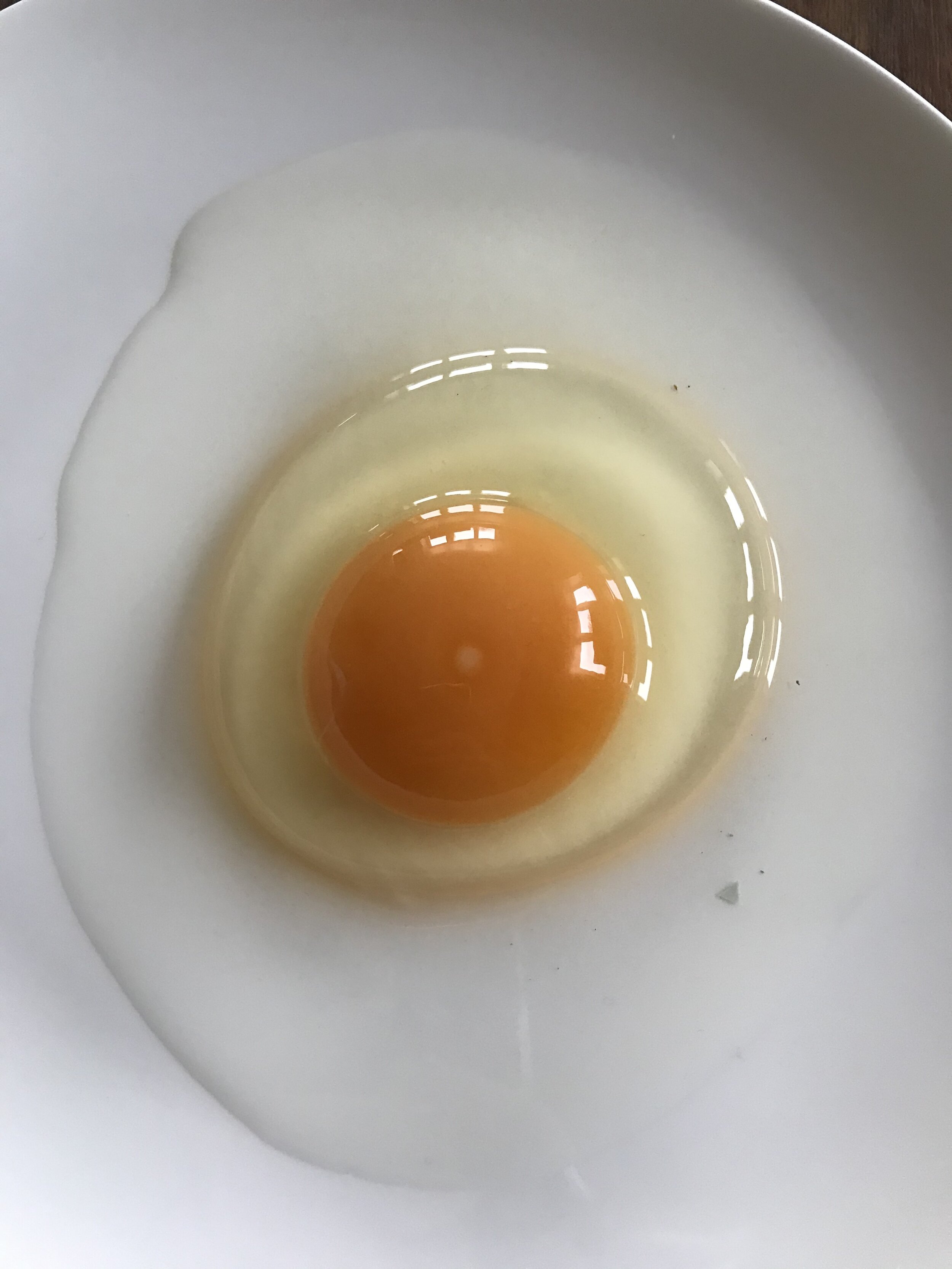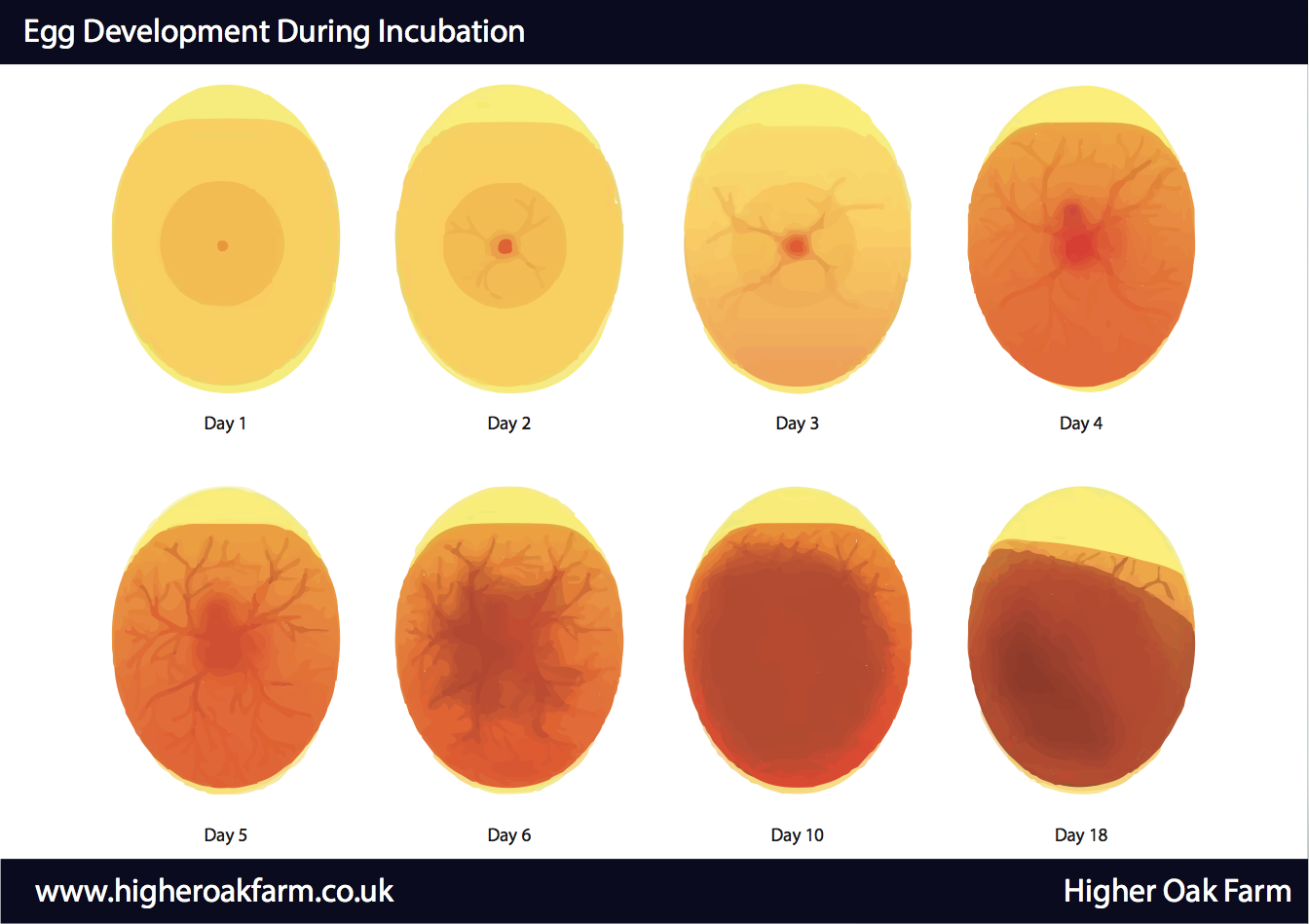We have a few local chicken keepers who keep trying to hatch their own eggs, but are having no success. The first thing to do is check if the eggs are fertile. You can do that a few ways. The simplest way of checking fertility is to crack open an egg from the hens and cockerel you’re planning on breeding from. You’ll only need to open 1 or 2 in the few days running up to your incubation.
When you crack open the egg, if it’s fertile, you’ll notice a small white spot on the top of the yolk about 4mm in width. This is called the germinal disc. This is what tells you if the egg has been fertilised. This disc is formed with a single cell from the female and a single sperm from the male. The female cell contains half the number of chromosomes and the male, the other half. After fertilisation of the two halves the resultant cell divides into two and these two cells grow and divide again until by the time the egg is laid, the mass of cells is visible as the germinal disc. During incubation, this mass of cells will further grow, divide and specialise to form the resultant chick, using the remainder of the egg contents as food. Below is an image of one of our Araucana eggs, you can clearly see the white spot in the top of the yolk, indicating that this egg was fertile.
You can also check the fertility of the egg during incubation. This is called candling the eggs. This step normally takes place during the 9th day of incubation. We use a Brinsea machine to candle the eggs.
This allows you to pop the egg on the stand, cover it over with the lid and look through the eye piece to see if there is any fertilisation and development of the egg. Below is a chart of what sort of development you are looking for at the different stages.



